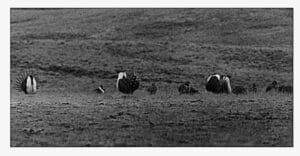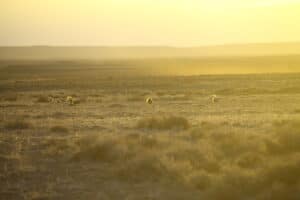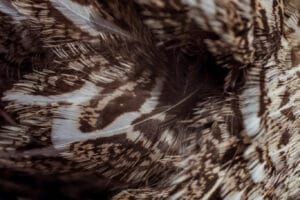After years of hard work by Wyoming people, who sought to avoid an Endangered Species listing of sage-grouse, the Department of Interior is revisiting state-based plans. Our concern is that changes to these plans could place the bird on the Endangered Species list, having irreparable harm on local economies, closing hunting, and placing regulatory hurdles on Wyoming’s traditional land uses.
The Federation has long been involved with greater-sage grouse management. Since 2007, a member of WWF has engaged in the Sage Grouse Implementation Team (SGIT) to lead proactive, science-driven, locally-led conservation of this species. The goal is finding both economical and sustainable outcomes that will support Wyoming’s wildlife, economy, and way of life into the future.
Each fall, many of WWF’s members and staff take part in the conservative hunting seasons, which are an important tool to monitor sage grouse population health. Hunters voluntarily submit sage-grouse wings, allowing Wyoming Game and Fish Department (WGFD) biologists to estimate chick production/recruitment from the ratio of the number of chicks per hen. Greater sage-grouse population data is reported by WGFD in an annual Job Completion Report thanks to the hunter participation.
PROTECTING THE BIG SANDY AREA
The Big Sandy is the area northwest of Farson between the Lander Cutoff Road, Hwy 191, and Hwy 28. The area makes a rough triangle from Boulder, WY, to Farson, WY, to South Pass City on Hwy 28.
This region has the highest concentration of Greater Sage-Grouse in the world. The reasons for this include good water sources, intact habitats, and low impact management. The Big Sandy, Little Sandy, and Dry Sandy rivers are key to keeping this place viable for wildlife. Working with the Southwest Wyoming Sage Grouse Working group, WWF sponsors flight markers on fences and repairs and improvements to steel buck rail fences around key springs, protecting the crucial water sources in the high desert.
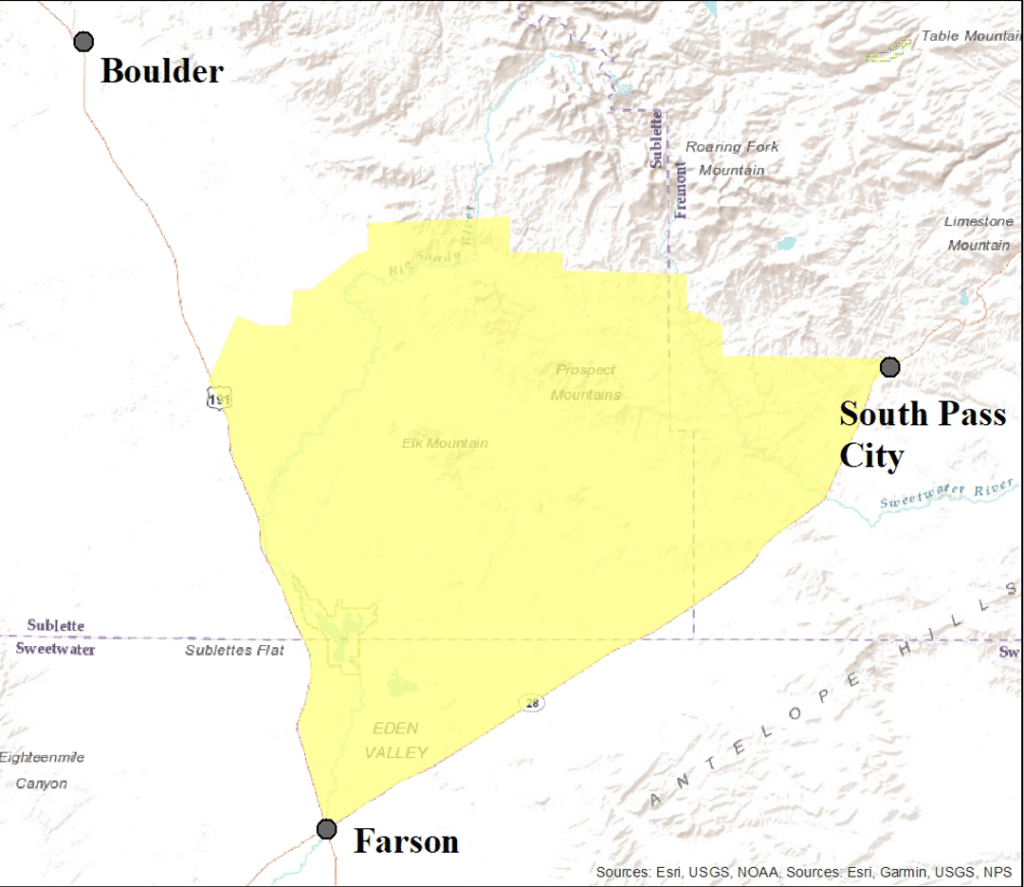
WWF’S 2020 SAGE GROUSE PILOT PROJECT
In 2020 WWF received a grant from the Southwest Wyoming Local Sage-Grouse Working Group to pilot a project that also analyzes success and maintenance needs. The Wyoming Wildlife Federation brought on retired sage-grouse biologist, Tom Christiansen to compile project records, survey and maintain the projects as needed, document sage-grouse activity associated with the sites, document any invasive plants associated with the project sites or surrounding areas and seek out additional on-the-ground project opportunities. These projects in southwest Wyoming include natural spring and other water source protection exclosures, sage-grouse fence collision prevention markers, juniper encroachment treatments and cheatgrass treatments.
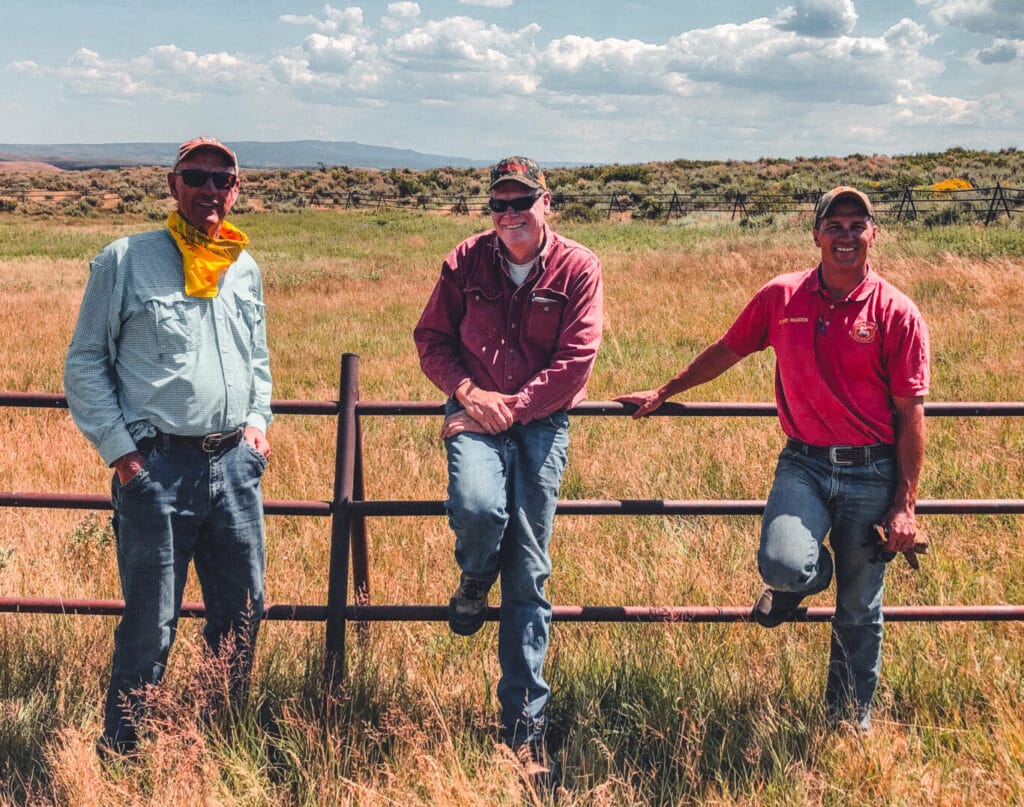
In August, Tom partnered with the Lowham Ranch to maintain a spring protection fence on ranch property south of Evanston. This property is enrolled in the Wyoming Game and Fish Department’s Walk-In Area program for public access to hunting and the ranch was recently awarded a landowner of the Year Award by the Green River Region of the Wyoming Game and Fish Department.
The Southwest Local Working Group will continue the project in 2021 and WWF will share future volunteer opportunities to assist in the efforts.
For more information about the Federation’s sage grouse work, contact policy director Joy Bannon at joybannon@wyomingwildlife.org
Latest Related News
Ernest Hemingway’s Letters On Wyoming’s Sage Grouse
Images abound of Ernest Hemingway holding rooster pheasants and ducks. He speaks of hunting Hungarian partridge and jacksnipe in Idaho, quail in Arkansas, and even grouse in Michigan. But there is another bird. One that escapes the headlines and paparazzi photos. It is […]
Three Reasons Sage Grouse Farming Should End
Update March 10, 2022: Senate File 0061 passed through the third reading on the House floor with a vote of 44 ‘aye’ and 15 ‘nay’ and 1 abstaining vote. The bill includes an amendment to sunset once again in 5 years. While the […]
Sage Grouse…Bon Apetit!
“The flesh of the cock of the Plains is dark and only tolerable in point of flavour. I do not think it as good as either the Pheasant or Grouse.” These words were spoken by Meriweather Lewis of the famous Lewis & Clark […]
The Issues Addressed
Each Program that Wyoming Wildlife Federation runs affects a variety of
different conservation Issues. Click on an Issue to find out more about it.
Help Protect Our Way of Life
We need everyone who values the wild spaces of Wyoming to get involved. Are you ready?


